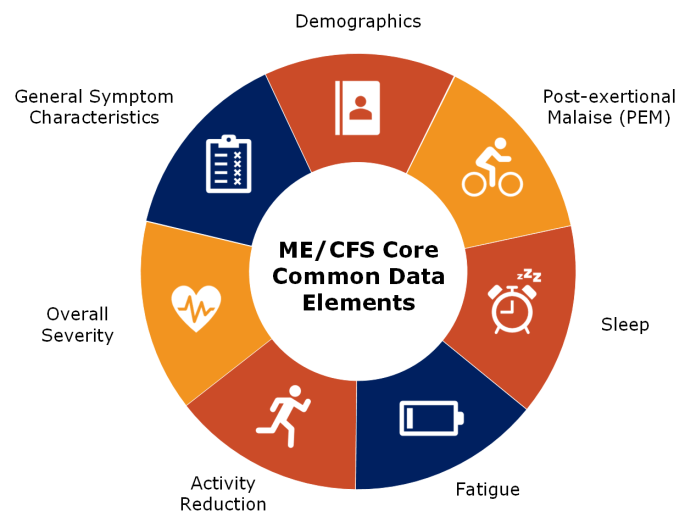Open Access Government produces compelling and informative news, publications, eBooks, and academic research articles for the public and private sector looking at health, diseases & conditions, workplace, research & innovation, digital transformation, government policy, environment, agriculture, energy, transport and more.
Home Search
stroke - search results
If you're not happy with the results, please do another search
47 million demand urgent changes to combat air pollution
Over 47 million health professionals, patients, advocates, and individuals worldwide have come together to demand immediate action to combat air pollution and protect human health.
Is ‘anonymisation’ enough to share NHS patient data safely?
The UK government's AI action plan uses public sector data, including anonymised NHS patient information, to drive innovation while addressing crucial data security and Privacy concerns.
WHO study reveals the leading causes of maternal deaths
A new World Health Organization (WHO) study revealed that severe bleeding and hypertensive disorders, such as preeclampsia, are the leading causes of maternal deaths worldwide.
Common data elements to advance ME/CFS research
Standardizing data collection in ME/CFS research through Common Data Elements is a crucial step toward improving diagnosis, advancing treatments, and fostering collaboration across studies to accelerate progress in understanding this complex disease.
How climate extremes are endangering millions in Africa
Alain Tamoffo, Postdoctoral Researcher at the Climate Service Center Germany (GERICS), Helmholtz-Zentrum Hereon, discusses how climate extremes are endangering millions in Africa.
New four-dimensional brain map could help detect multiple sclerosis earlier
A new study by researchers at the National Institute of Health (NIH) revealed their new four-dimensional brain map. This new way of brain mapping reveals how multiple sclerosis (MS) develops and how brain tissue may repair itself.
WHO and Swiss TPH release updated air quality standards database
The World Health Organization (WHO), in collaboration with the Swiss Tropical and Public Health Institute (Swiss TPH), has released an updated version of the 2025 Air Quality Standards database.
Reducing oxidative stress: Antioxidants key in the fight against non-communicable diseases
Non-communicable diseases (NCDs) thrive on oxidative stress, an imbalance of reactive oxygen species. This review delves into the crucial interplay between antioxidant enzymes and dietary antioxidants.
Euclid detects Einstein Ring around NGC 6505 caused by gravitational lensing
Euclid, the ESA's dark Universe detective, has made a stunning early discovery: a near-perfect Einstein ring. This rare phenomenon, caused by gravitational lensing, was found surrounding galaxy NGC 6505, showcasing Euclid's power and hinting at the wealth of cosmic secrets it will uncover.
Advancing brain health in Europe: Looking ahead with key priorities and initiatives
The European Brain Council is a non-profit organization dedicated to promoting brain research and improving the lives of the estimated 179 million Europeans living with brain conditions. Here, they discuss efforts aimed at enhancing care and raising awareness about brain health in Europe.
Social connections lead to better health: It’s time to tackle loneliness
As loneliness is becoming an increasing concern affecting people of all ages, a new study has revealed that social relationships are not just important for emotional well-being but play a key role in keeping us physically healthy.
The future of AVS, dizziness, and vertigo in emergency departments Part V: Rise of...
In the final article of this five-part series, Dr Millie Nakatsuka discusses emerging technologies relevant to acute vestibular syndrome (AVS) in the emergency healthcare setting.
What’s the connection between oral health and overall health?
The Council of European Dentists (CED) is a not-for-profit association representing over 340,000 dentists. Here, they address the relationship between oral health and overall health, as well as the necessary steps to improve access to dental care and reduce related inequalities.
Jim McGuire – CPI, Medicines Manufacturing Innovation Centre
Jim has over 30 years in healthcare, biotech, and MedTech, with expertise in management, commercialisation, raising capital, regulatory pathways, project management, IP, and product and manufacturing development.
Originally qualified and working in clinical and molecular microbiology, Jim also has experience in MedTech and life science start-ups and was the CEO...
The UK government’s plans to address men’s health this Movember
This Movember, the UK government has announced plans to create a national Men’s Health Strategy, a long-awaited initiative that will address the health challenges faced by men across the country.
Tackling loneliness through telecare: Supporting vulnerable people in Spain
Abel Delgado, Managing Director of Tunstall Spain, explains the urgency of loneliness as a health problem for the elderly and what other regions can learn from Spain’s proactive and preventative approach, that benefits both physical and mental health.
Brain innovation days 2024: Understanding the brain across a lifetime
Over 165 million Europeans are living with a brain disorder, this is an increased challenge that requires more attention and innovative solutions.
The future of personalised cardiovascular disease detection and monitoring
Professor Allan Lawrie from Imperial College London, discusses the future of personalised cardiovascular disease detection and monitoring, including comment on wearable technology and AI.
Avoiding sepsis: How to protect yourself
Sepsis causes 350,000 adult deaths annually in the US alone. Sepsis Alliance focuses on raising awareness, improving education, and advocating for life-saving policies. Senior Clinical Content Advisor Marijke Vroomen Durning discusses the risk factors and best prevention methods to help in avoiding sepsis.
Fuelling the global supply of medical radioisotopes for cancer care
European research reactors play a crucial role in producing medical radioisotopes using nuclear fuel and are transitioning to Low Enriched Uranium (LEU) to meet non-proliferation commitments and global demand. Jared Wight tells us how he and his colleagues are working to ensure a smooth conversion to LEU fuels.





















